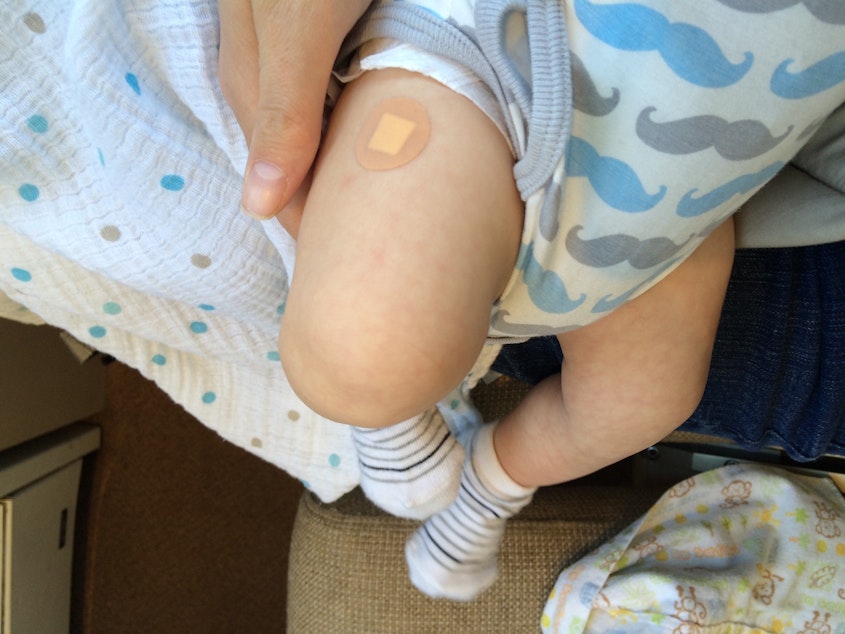This Mom Feared Vaccines – Until She Discovered Something Beautiful About Them

When writer Eula Biss was pregnant, she absorbed some of the fear about vaccines.
“Fear is almost contagious itself, and so I caught some fears,” she told KUOW’s Jeannie Yandel.
“One of those was a fear of toxicity, this idea that I was going to give birth to a child who I was assuming would be completely free of toxins,” she said. “I didn't want the first thing I did to be introducing toxicity to his body.”
It’s also a historic fear, she said.
Vaccines have been controversial in the U.S. since the Revolutionary War. That’s when Rev. Cotton Mather heard about smallpox inoculation and tried it on his son. It worked, but physicians and the public protested, saying inoculation could spread the disease.
There’s a similar controversy brewing in Seattle. Certain neighborhoods – mostly in the North End – have low vaccination rates among kindergartners.
Related: Seattle Schools With Most Unvaccinated Kids Are In Wealthier Neighborhoods
Biss ultimately decided to vaccinate her son when she started writing her book, “On Immunity: An Inoculation.”
And she came to see getting vaccinated as a gift to the vulnerable people in our society – babies, the elderly and the very sick. The more people are vaccinated, the less likely those people are to get sick.
“We're asking the majority of people who will not be expected to die from pertussis to enlist their own bodies in the protection of infants under 1 who could very well die from exposure to pertussis,” Biss said.
“Those of us who have less vulnerability are actually reaching out and offering some protection through our own bodies,” she said. “I find it incredibly beautiful.”
But she understands why people might be squeamish about vaccines.
"Many people, even people who are proponents of vaccination, perceive a violation of the body in the actual act of vaccination,” Biss said. “I was recently talking to another mother, and she said, ‘I'm entirely for vaccination. I vaccinate my child, but I still wince when I see that needle enter my child's flesh.’”
Biss said it’s a visceral response – and that it becomes a symbolic violation. “We use that visceral violation as a metaphor for the other ways in which we feel violated in our life. We may feel violated by government intrusions onto our life. We may feel violated by the way the medical establishment has interacted with us.”
“What we're really doing is trying to prevent the violation of the body by something that is known to be dangerous,” she said.

